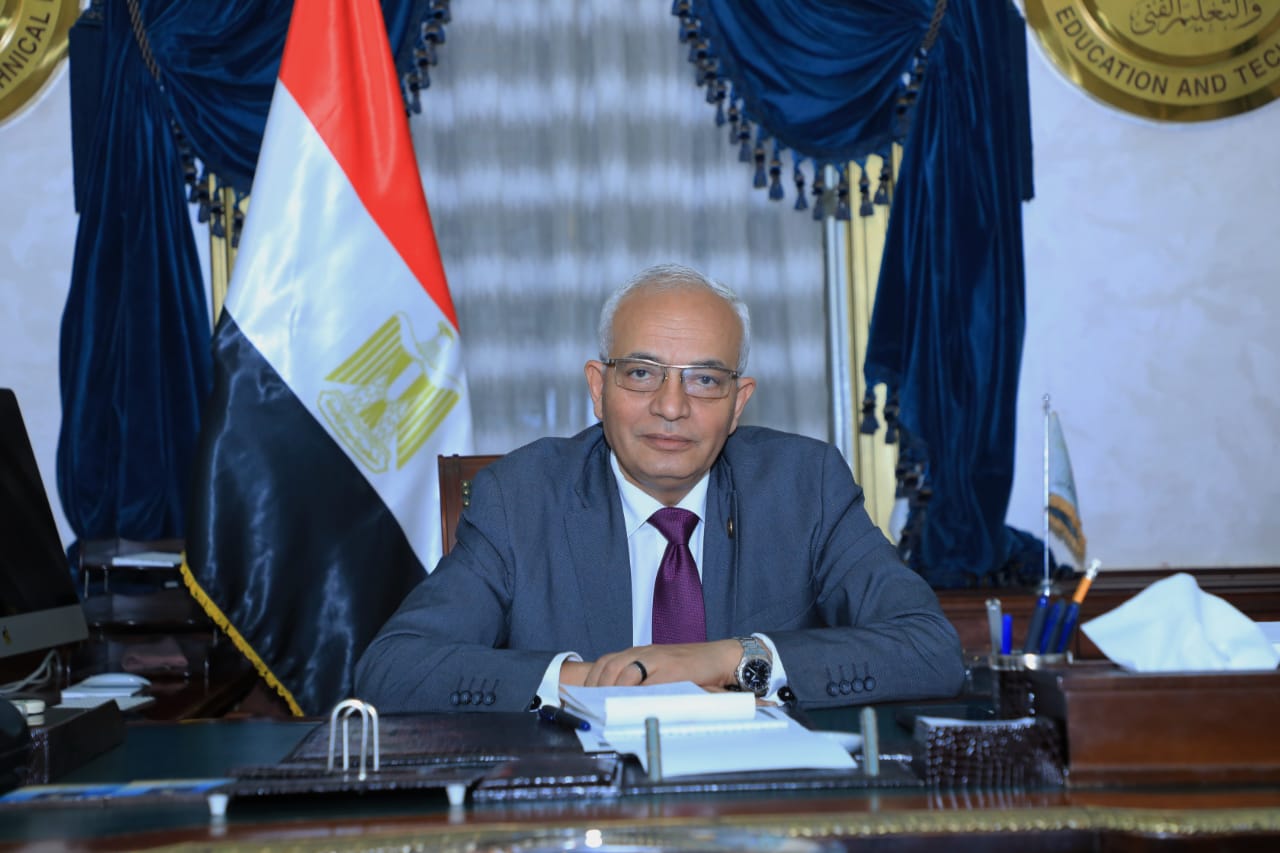The Minister of Education announces the launch of the "Calendar for Learning" project at the beginning of the academic year 2023/2024

Dr. Reda Hegazy:
Create open electronic question banks for classrooms at different educational levels
The participation of a selected group of teachers in preparing these banks according to specific criteria
Investing the Ministry's technological platforms and infrastructure in producing question banks with modern methods that mainly contribute and assist students in the process of self-learning.
The "Assessment for Learning" project emphasizes the importance of shifting from the culture of traditional assessment to assessment for learning concerned with measuring procedures and processes in addition to learning outcomes.
Constructing short tests placed at the end of the unit or chapter to measure the student's ability to achieve the intended learning outcomes
Dr. Reda Hegazy, Minister of Education and Technical Education, held a meeting today; To launch the "Assessment for Learning" project at the beginning of the academic year 2023/2024, which comes as a continuation of a series of measures implemented by the Ministry that aim to help students achieve effective academic achievement and achieve maximum benefit through developing academic content and improving the level of the educational process.
This came in the presence of Dr. Ahmed Daher, Deputy Minister for Technological Development, Dr. Ramadan Mohamed Ramadan, Assistant Minister for Evaluation and Examination Systems, Dr. Akram Hassan, Head of the Central Administration for Curriculum Development, Dr. Rabab Zaidan, Director General of the General Administration of Educational Leadership, and Dr. Fathia Khairy in the Technical Office of the Deputy Minister for Technological Development. Coursework development advisors.
During the meeting, the minister emphasized the importance of attracting students to school and paying attention to learning outcomes. Therefore, the ministry worked to launch a project to establish open electronic question banks for classrooms in the educational stages, "Assessment for Learning", where a selected group of teachers participate in building these banks according to standards Specific, provided that they are adequately trained on the foundations of evaluation and wording, description and classification of vocabulary according to graded levels.
The minister said that through this project, the tremendous progress in information and communication technology is being invested, and the ministry's technological platforms and infrastructure are being invested in producing question banks with modern methods that mainly contribute and assist students in the process of self-learning according to their varying abilities, and enable them to improve their achievement ability by identifying Their strengths and weaknesses, as well as the benefit of teachers and mentors in the field of evaluation.
The Minister also explained that the "Assessment for Learning" project emphasizes the importance of shifting from the culture of traditional assessment to assessment for learning concerned with measuring procedures and processes, in addition to learning outcomes, and considering that assessment is a really important step in the context of the educational process, and it receives great attention among Different segments of students and their parents to improve the quality of the educational process.
Dr. Reda Hijazi reviewed the steps for establishing question banks for the three educational stages, explaining that the construction of the question bank for the secondary stage will start as a starting point for controlling factors and variables, and then start working directly in the primary and preparatory stages.
The minister explained that the bank will contain no less than 2,000 test items of graded levels and correspond to the different learning outcomes with their relative weights (for each academic subject).
The minister also added that the bank will include objective questions and essay questions to cover all targeted learning outcomes, and build short tests to be placed at the end of the unit or chapter to measure the student's ability to achieve the targeted learning outcomes. The student can also, through his e-mail, enter this test.
